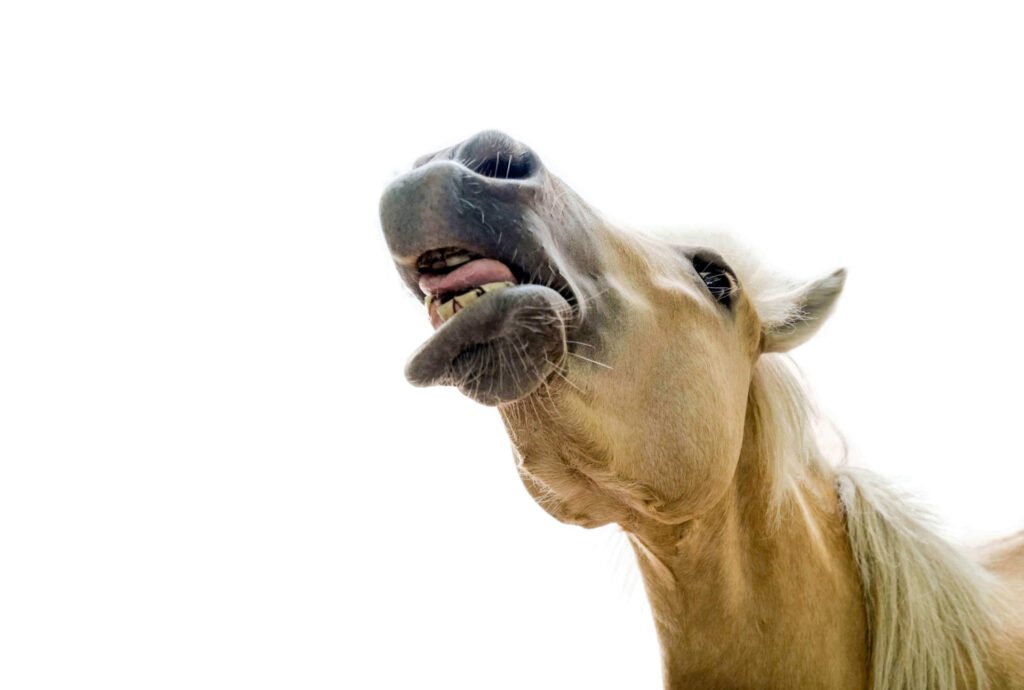If your horse is choking, it can be a stressful situation,
but knowing how to respond quickly and effectively can help prevent complications. Choke occurs when food or another object becomes stuck in the horse’s esophagus, causing a blockage that prevents them from swallowing properly. Here’s a step-by-step guide on what to do if your horse has choke.
1. Stay Calm and Assess the Situation
It’s important to remain calm. Horses can sense anxiety, and staying calm will help you manage the situation better. Look for signs of choking, such as:
- Difficulty swallowing
- Drooling or frothing at the mouth
- Coughing or gagging
- Neck extension or head stretching
- Pawing the ground or becoming restless
2. Keep the Horse Still
Do not allow your horse to move around excessively, as it can worsen the situation. Keep them as still and calm as possible to prevent the obstruction from shifting or causing further distress. Remove any other animals or distractions from the area to avoid causing additional anxiety for the horse.
3. Call Your Veterinarian
Choke is a medical emergency, and your veterinarian should be contacted as soon as possible. They will guide you on what to do next and may need to come to the location to treat your horse. If your horse is showing signs of severe distress or if the choke has lasted for more than a few minutes, it’s critical to seek veterinary care right away.
4. Observe and Record Symptoms
While waiting for the veterinarian, observe your horse closely. Take note of any changes in behavior or symptoms such as:
- Whether the horse is able to pass any saliva or food
- The degree of discomfort they are showing
- Any changes in respiration or heart rate
This information will be helpful to the veterinarian in diagnosing the severity of the choke.
5. Do Not Attempt to Clear the Choke Yourself
Although it may be tempting to try to help your horse by sticking your hand into their mouth or throat, do not try to clear the choke yourself. This can cause injury to the esophagus, and attempting to remove the blockage can make things worse. Only a trained professional can safely address the situation.
6. Do Not Offer Food or Water
While your horse is choking, do not offer any food or water. This can lead to further complications, including aspiration (food or liquid entering the lungs). Wait until your veterinarian has arrived and cleared the blockage before offering anything to eat or drink.
7. Treatment by the Veterinarian
Once your veterinarian arrives, they will assess the situation and likely attempt to clear the blockage using one or more of the following methods:
- Lubrication: The vet may introduce fluids like water or lubricants to help loosen the blockage and allow it to pass.
- Endoscopy: In some cases, a flexible tube (endoscope) may be used to visually inspect the esophagus and remove the obstruction.
- Sedation or muscle relaxants: The vet may sedate your horse to help relax the muscles of the esophagus, which can make it easier for the blockage to clear.
- Passage of a nasogastric tube: In some cases, a tube may be passed into the esophagus to help relieve the obstruction.
8. Post-Treatment Care
Once the choke has been cleared, your horse will need monitoring to ensure that the blockage does not recur. The veterinarian may also want to assess your horse’s overall health, especially if there were any signs of trauma to the esophagus. You may need to:
- Provide soft, easily digestible food for the next few days
- Monitor your horse for signs of discomfort or difficulty swallowing
- Follow your vet’s advice for feeding and managing your horse post-choke
9. Prevent Future Chokes
Preventing choke in horses is possible with a few proactive steps:
- Feed smaller portions more frequently to reduce the chance of your horse swallowing too quickly.
- Use a slow feeder or spread out food to encourage slower eating.
- Soak hay or feed to make it easier for your horse to chew and swallow.
- Ensure proper dental care so your horse can chew food effectively.
- Avoid large chunks of food or treats that are too big for the horse to swallow easily.
Conclusion
If your horse is choking, quick action is necessary, but you should never attempt to clear the blockage yourself. Call your veterinarian immediately, and while waiting, keep your horse calm and still. With proper veterinary treatment, most cases of choke can be resolved safely. By taking steps to prevent future choking incidents, you can help ensure your horse’s long-term health and well-being.




